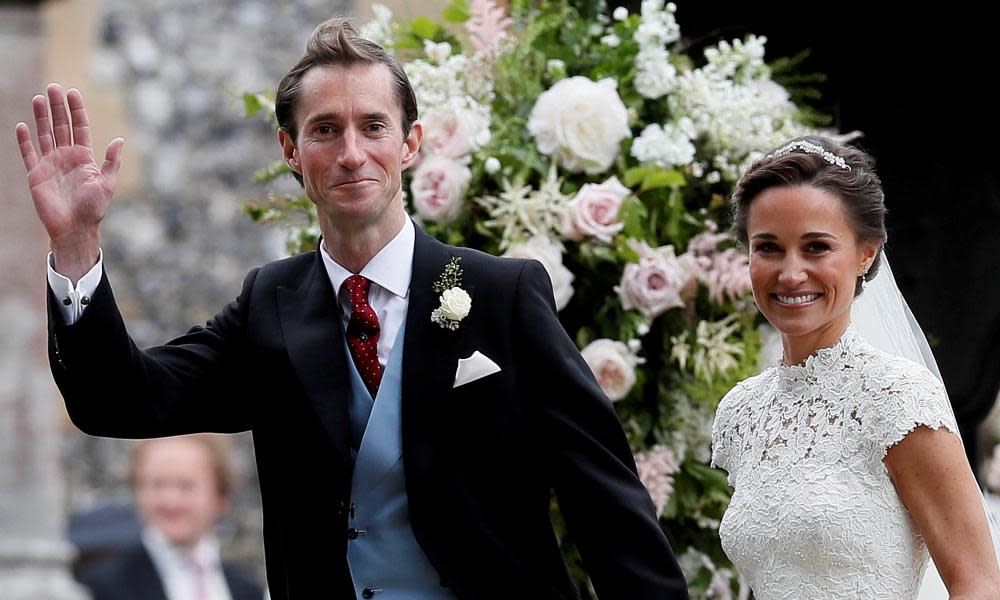The Guardian view on marriage: not what keeps couples together

Wittily dubbed the wedding of the rear, Saturday’s marriage of the Duchess of Cambridge’s sister, Pippa Middleton, to a banker, James Matthews, has provided some sunny uplift in dreary times. Good-looking couple, cute kids, extreme frocks, and royalty too: it’s such good newspaper-selling cheer that some produced souvenir picture pull-outs. It was also, in the sheer eye-widening expense (estimates vary but they start at around £250,000 – the cost of the average home), a vivid commentary on how what used to be a sacramental rite of passage has become about many other things too.
Marriage has always been a celebration, but its scale has ebbed and flowed in line with prosperity and social attitudes. For some couples, its roots in the long history of female oppression are happily obscured under heaps of rose petals and frothy lace like that on the £40,000 Giles Deacon dress that Pippa Middleton wore. For others, those roots make the whole idea of marriage unacceptable, which may be one reason why the marriage rate has been in steady decline since the 1970s. Even people who do get married are less likely to have a religious than a civil ceremony.
Yet those who opt for the public affirmation of their commitment do it in ever grander style. According to Brides magazine, by the time the venues, the drinks, the dress and the rings have been paid for, the average British wedding costs around £20,000. No wonder that the fastest-growing couple type, according to the Office for National Statistics, is those who are unmarried. Nearly 3 million couples live together, many of them under the illusion that they have the same legal status as people who have gone through a ceremony.
It’s only when things fall apart, perhaps under the stress of losing a job or facing a housing crisis, that the painful truth emerges: the law still sees them as separate individuals. Assets, rental agreements, bank accounts – these are not owned in common unless it is expressly stated. It is most often women who end up the losers.
Governments repeatedly misread the evidence about marriage and stability: it is statistically true that married couples are more likely to stay together than cohabiting ones, but the evidence is that they stay together not because they are married but because of what they bring to the marriage – even at the budget end of the market. Back in 2010 a study by the Institute for Fiscal Studies, which analysed data on couples to find whether the formality of a relationship influenced its outcome, showed that those who stayed together tended to be better off, more religious, more likely to be highly educated, and the children of married parents. It is the characteristics of the couple before the marriage, rather than marriage itself, that are the biggest influence on outcomes. Yet governments continue to ignore expert recommendations to give cohabiting couples in England clear legal rights like those available in Scotland, claiming that it would undermine marriage.
Each individual wedding is a family delight, a moment for joy and celebration, a day of unforgettable memories that for those involved is worth every penny that is spent. But taken collectively, weddings also look like elaborate displays of consumption – one more way that society demonstrates its reluctance to challenge privilege and its deliberate blindness to disadvantage.

 Yahoo News
Yahoo News 
